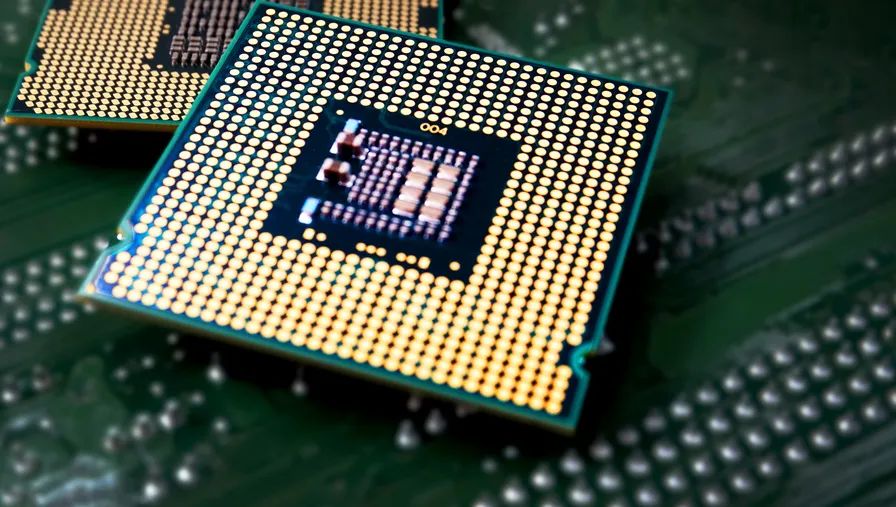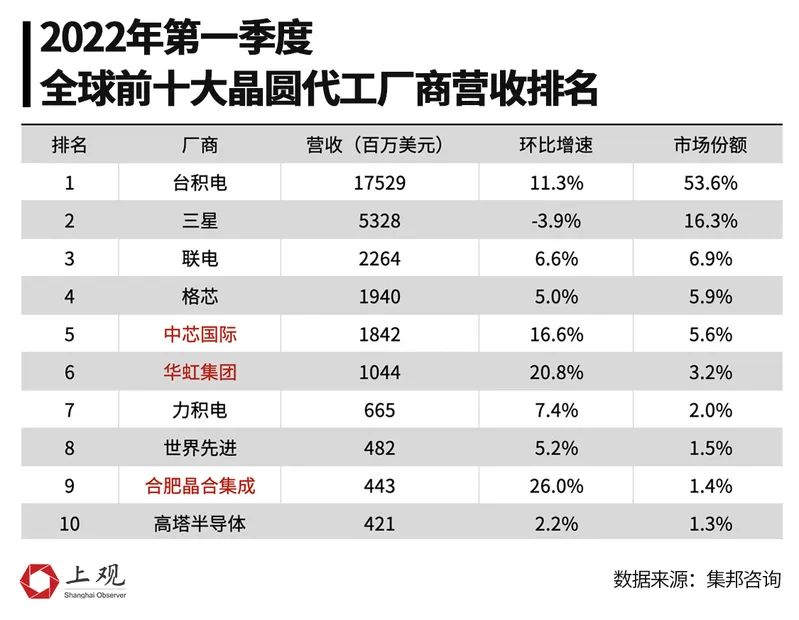Biden signed a $ 280 billion chip bill. How much impact does chip dealer have been forced to "stand team"?
Author:Look at the news Time:2022.08.11
On August 9, Biden officially signed the "2022 Chip and Science Act". This 1054 -page chip bill was called the New York Times as "the US government's most important intervention in industrial policies in decades."
In fact, this bill is generally considered to be targeted at the Chinese chip industry because of exclusive industrial support policies to prevent international semiconductor companies from continuing to invest in China. Experts point out that the global chip industry chain will be disturbed in the short term, but in the long run, the technology transfer of the global industrial chain and the rapid development of the Chinese chip industry will not be much affected.

Legislative chip dealer "standing team"
The overall amount of chip bills signed by the United States reached US $ 280 billion. The main contents include increasing US $ 200 billion in investment for scientific research, especially in the fields of artificial intelligence, robotics, quantum computing, etc. At the same time, it proposes to provide US $ 52 billion subsidies and additional tax credits for companies that manufacture chips in the United States.
This bill also stipulates that chip companies that have obtained federal funding subsidies shall not expand advanced chips manufacturing in countries including China and Russia in the next 10 years (of which advanced chips are interpreted as chips less than 28 nanometers). This means that starting from the effectiveness of the bill, the subsidized chip companies will not continue to increase production chips in China. According to Bloomberg, Samsung and TSMC are currently set up chip factories in the United States and China at the same time, of which TSMC produces 28 nanometer and 16 nanometer chips in China.
At the same time, the bill also mentioned that the 28 -nanometer standard will be re -evaluated with technological progress, and it may extend to the fields below 28 nanometers in the future, which means that the United States may have more and more restrictions on chip companies in China in the future.
The market believes that the true purpose of the United States is actually through exclusive "rules games", and chip companies that may be possible in other countries to "pull back" the United States.
Why does the United States do this
According to data released by the US Parliament, in 1990, the US chip production market share was 37%, and the figures fell to 12%in 2021.
Shen Huangnan, assistant professor of the Department of Applied Economy at the School of Management of Fudan University and a researcher at the International Development Research Center of the Kennedy College of Harvard University, analyzed that the US move was mainly to strengthen its leadership in the chip industry chain.
In the past two decades, the United States has admired the economic development model based on neo -liberalism. In order to reduce costs, the US chip industry has increasingly gathered to the top of the industry chain and retains the advantages of the design side. Fewer companies engaged in chip manufacturing in the United States. In its national chip companies, only Intel has a large -scale factories in the United States, and the rest, such as AMD, Qualcomm, and Nvidia, are produced by chip production in overseas foundries.
In addition, China's rapid growth in the chip field has also made the United States more worried. In 2021, China's market share in the global chip production was 15%, which has surpassed the United States. According to the International Semiconductor Association, by 2024, 31 chip factories will be built in mainland China, 19 newly added in Taiwan, and only 12 are added in the United States.

According to Jibang Consultation data, three of the top ten chip foundry companies in the world have already come from mainland China. And the growth rate of these three chip foundry companies is significantly higher than that of other chip foundry companies. The revenue of SMIC, Huahong Group, and Jinghe integrated revenue are 16.6%, 20.8%, and 26.0%from the previous month.
In the field of mature process, China has begun to work gradually. In recent years, the self -sufficiency rate of domestic chips has continued to rise. Based on output, the self -sufficiency rate of mainland China chip in 2021 reached 36%. At the same time, more and more international chip companies have handed orders to Chinese foundry. In May this year, South Korea's first trade deficit with China, of which integrated circuits are the most imported products in South Korea from China.
On the other hand, in the context of the epidemic, the global chip supply chain was disturbed, and there was a serious chip shortage problem in the United States. At present, nearly 90%of the US high -end chips are imported from South Korea and Taiwan. According to the statistics of the US agency, the shortage of chips in 2020 has caused the US economy to suffer $ 240 billion in losses, including head companies such as Apple and General Company.
Under the state of unstable global supply chain, many countries in the world have begun to "revive" chip industry policies. Earlier this year, the European Union proposed the "European Chip Act", which is estimated to invest 43 billion euros in the field of advanced process chip manufacturing; at the beginning of the year, Japan proposed the draft of the "Economic Security Promotion Act". The chain is safe, and the Japanese government expects to recapture 20%of the semiconductor market by 2030; in early August, South Korea officially started the "National Strategic Industry Law", mainly aimed at the chip industry. According to IC Insights prediction, the total capital investment of the global chip industry this year will be as high as US $ 190 billion, which has maintained a double -digit percentage increase in the third consecutive year.
The global supply chain of the chip is facing short -term interference
Shen Huangnan pointed out that the chip industry is characterized by high thresholds, long investment cycles, and high R & D risks, so the introduction of industrial policies is necessary. In the early stage of economic development, developing countries have a clear -cut industry policy because they have a clear cutting -edge industry reference system. In the later period, developed countries will also rely on industrial policies to consolidate their upstream status, forming a situation of "you chase me" in the international supply chain. However, Shen Huangnan emphasized that in terms of tradition, developed countries consolidate market share are achieved by improving scientific research innovation and design capabilities. Now the United States for compulsory stipulation to enterprise investment actions will only destroy the division of labor systems of the global chip industry chain.
The interests of international chip manufacturers, including American chip manufacturers, will be damaged. The most typical example is Intel. Intel currently has a chip sealing and testing center in Chengdu. In last year, Intel said that he hoped to expand a Chengdu chip factory that he built, but he was forced to succeed in the political pressure of Bayeng government. According to Bloomberg, before the bill was promulgated, Intel had lobbied vigorously, hoping that the United States would not limit the investment of chip companies in China, saying that this would "inadvertently weaken the global competitiveness of companies that accept the funds of the bill."
The reason is that the cost of producing chips in the United States is too high. "China's huge market size, friendly investment environment, relatively complete infrastructure, lower labor costs and mature workers' technical levels are irreplaceable." Therefore, Shen Huangnan believes that the long -term trend of technological transfer to China is unchanged.
He also believes that the artificial development of the United States' self -development of the industrial chain will force China to increase its investment in the independent development of chips and accelerate the integrity of China's semiconductor industry chain.
Liberation Daily · Shangguan News Original manuscript, reprinting without permission
Author: Wu Danlu
WeChat editor: Jiasinmin
- END -
Rinse a "black hole" photo for 2 years, Wuhan's "Quantum Cloud" to achieve an increase in acceleration

From laser, computer, atomic clock, nuclear magnetic resonance to confidential com...
WeChat rumors "can only send 7 friends in a week": Don't hear the way

Zhongxin Jingwei, August 8th. WeChat WeChat 110 (account main body: Shenzhen Tence...